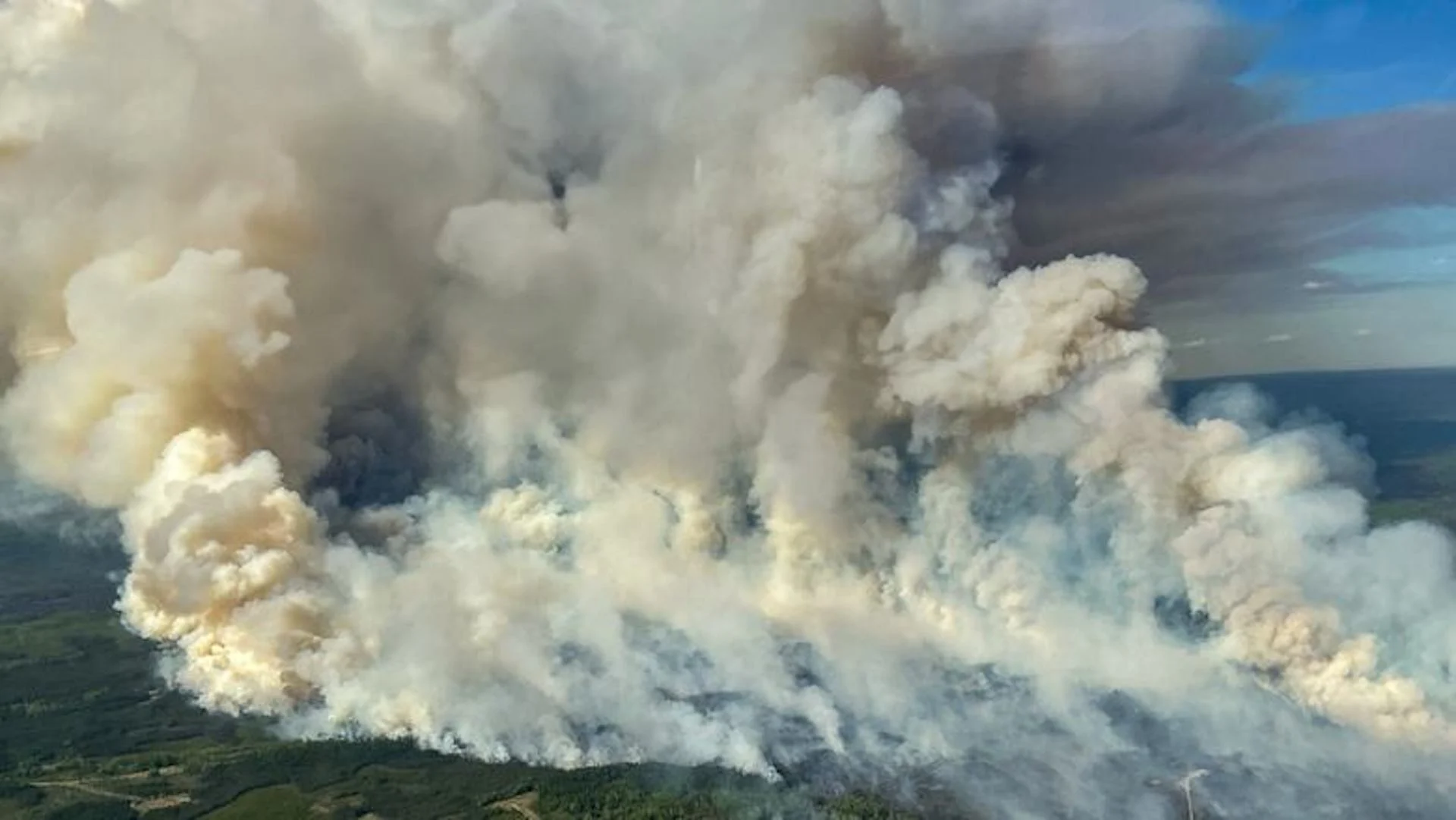
Northern Alberta community begins welcoming wildfire evacuees
Fire crews are facing a challenging day as a wildfire encroaches on the town of Swan Hills in northern Alberta.
An evacuation order was issued shortly after 6 p.m. Monday as the flames of the Edith Lake wildfire drew closer to the town of more than 1,300 people.
A wildfire detected Sunday is now burning out of control just seven kilometres from the edge of town, which is nestled in the boreal forest about 220 kilometres northwest of Edmonton.
DON'T MISS: The Weather Network's wildfire hub
The blaze, fanned by powerful and unpredictable winds, has burned close to 2,300 hectares since it was first spotted.
A provincial fire weather forecast is predicting gusty and shifting winds and rising temperatures on Tuesday and the national fire danger is listed as extreme across much of the province.
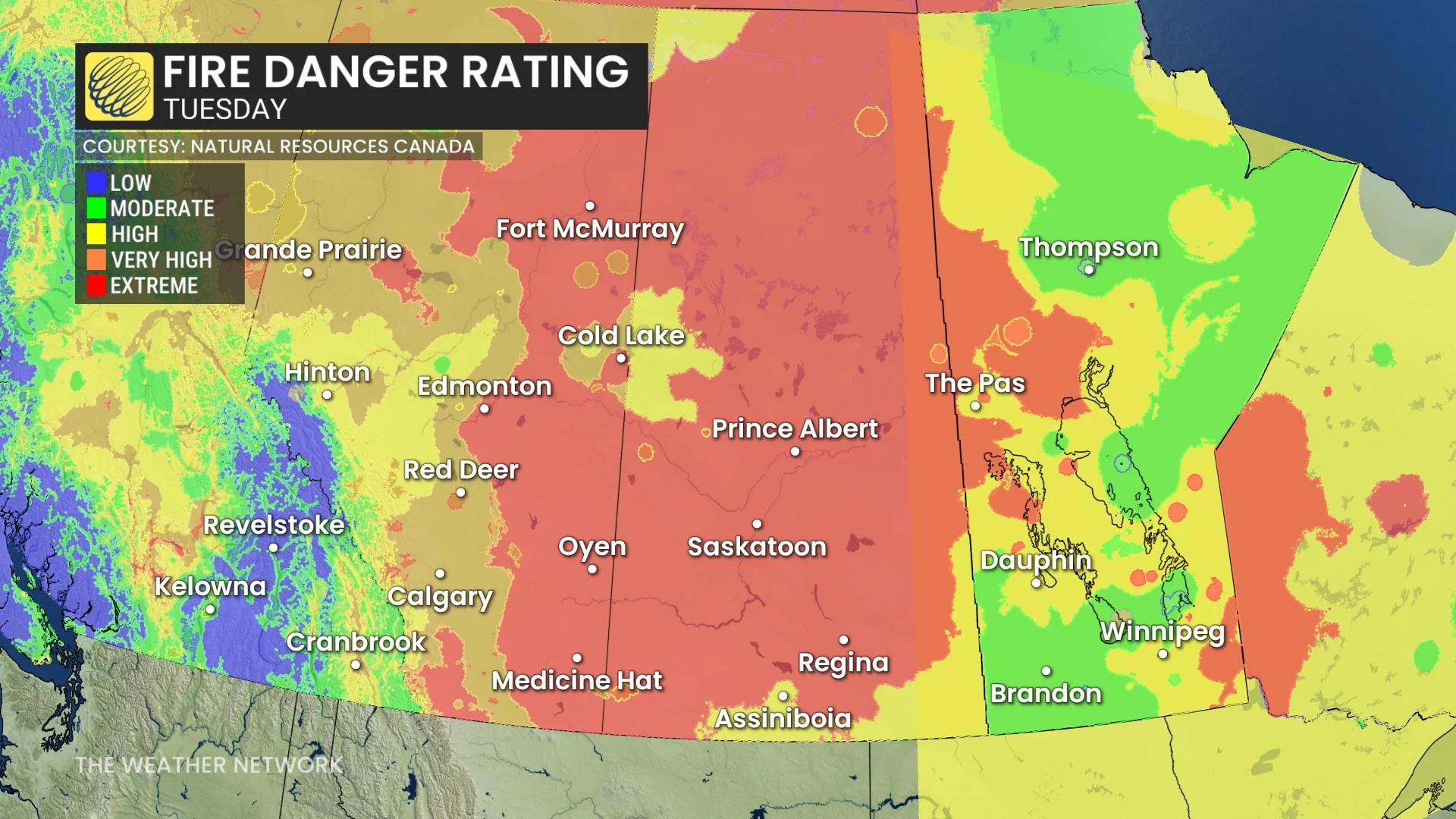
As of 8 a.m. Tuesday, there were 11 out-of-control wildfires in Alberta, the majority in the north of the province.
In an interview Tuesday, Whitecourt Mayor Tom Pickard said 705 evacuees have registered at the reception centre at Allan & Jean Millar Centre.
Some people are staying in town at local hotels and many are headed to campgrounds in the area, he said.
WATCH: Fire bans and advisories begin in Alberta, what you need to know
He said town staff worked closely with emergency officials through the night. He said the evacuation and the convoy went smoothly and they were told evacuees made their way safely south.
"The convoy and evacuation was very orderly," he said.
Whitecourt has hosted wildfire evacuees before in 2023 when their northern neighbours, including residents of Swan Hills, were ordered out.
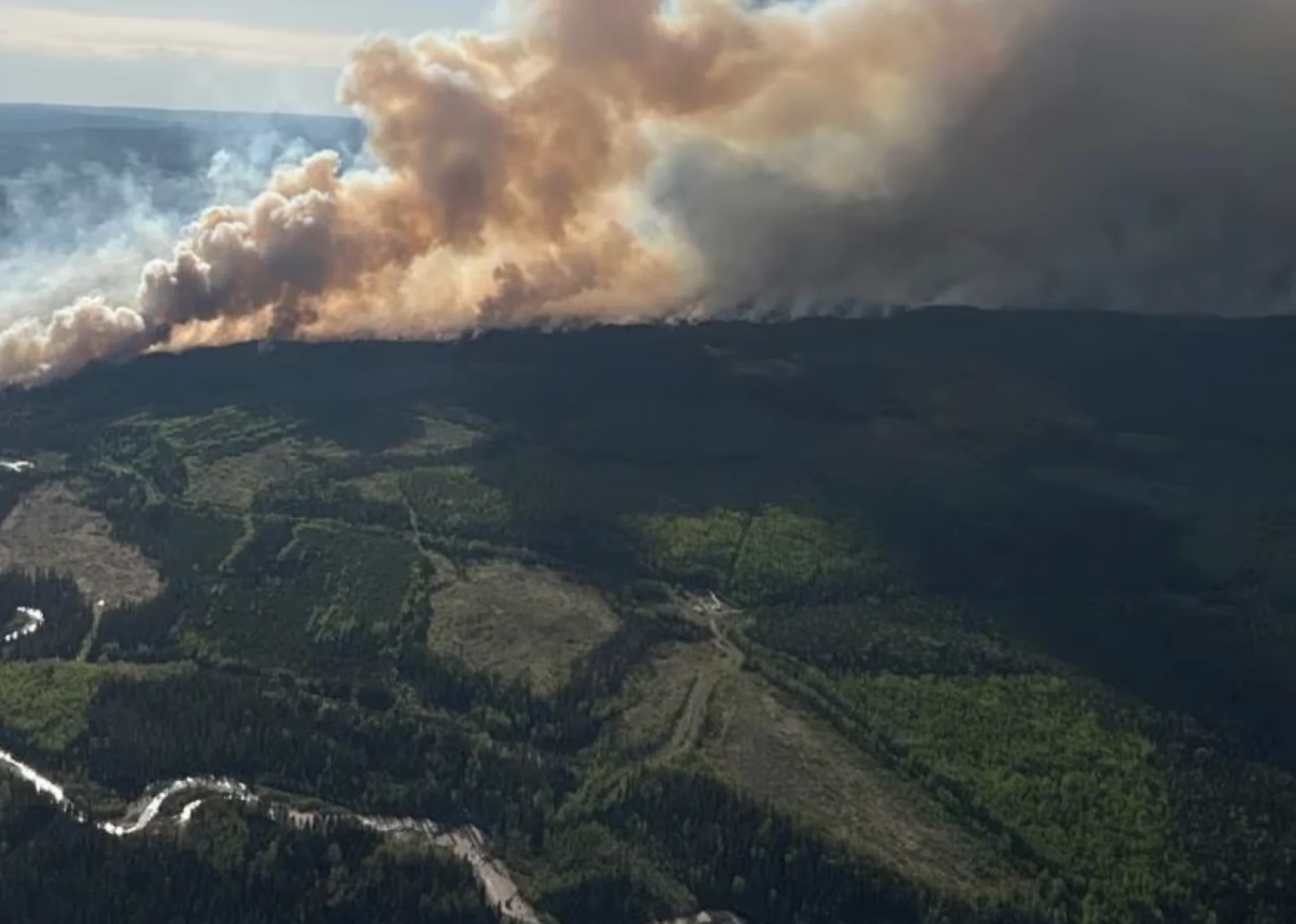
Smoke billows over the skyline in an aerial view of the wildfire near Swan Hills on Sunday. (Alberta Wildfire)
He said residents have again stepped up providing food and shelter to those in need.
Inside the Allan & Jean Millar Centre Tuesday morning, a line of about 50 evacuees snaked through the hallway leading to a rink turned reception centre, waiting to register and get their daily meal vouchers.
Hemmed by hanging hockey nets, town staff greeted evacuees at long lines of white tables.
A small white dog scurried between boots and sneakers.
A man and woman shared a hug before walking back outside to a parking lot busy with trucks and RVs crammed with boxes and bags and small sleeping passengers.
Cynthia Moore was among the evacuees at the centre on Tuesday.
She said that compared to 2023, this evacuation was more organized, but it is always tough leaving your home in an emergency.
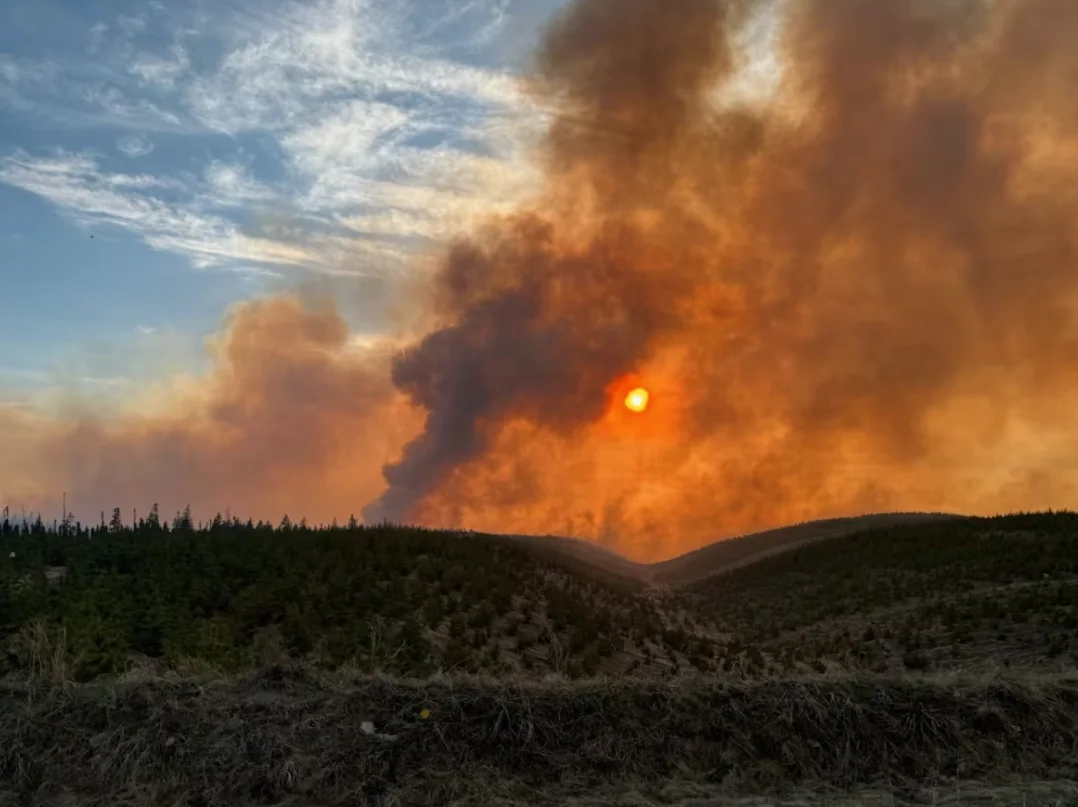
A fire burning in Yellowhead County in western Alberta has put some rural residents on evacuation alert. (Yellowhead County)
"It's hard, you think, 'OK, I've worked all my life to get this' and just praying and hoping that the good Lord is going to make sure that our home is safe, our community is safe and everybody is out," she said.
"That's all you think about."
Another evacuee, Kathy Lawrence, has lived in Swan Hills for about two years.
She said as soon as she saw the evacuation alert on TV, she packed her suitcase and was ready when the evacuation order was issued.
She said that in addition to the essentials she might need, she made sure to bring things that were irreplaceable.
"I didn't want to lose pictures of my kid because she's passed, right? So, I needed to bring her with me and I brought her baby blanket that I've been sleeping with since she died," Lawrence said.
"Those were the important things and the rest is just material things and we could replace them. As long as we have each other and our few pictures, I'm fine."
She said the evacuation process was "as smooth as butter."
"The evacuation, I thought, would be more panicked, but it wasn't."
Town residents had been placed under a one-hour evacuation notice earlier Monday and were warned that changing winds could force them to flee.
As the fire grew in the afternoon, thick smoke from the nearby flames forced the closure of Highway 33 to the north.
Oil-and-gas producer Aspenleaf Energy, which has wells in the area, evacuated its local field staff and temporarily halted operations, shutting in approximately 4,000 barrels-of-oil-equivalent per day of production.
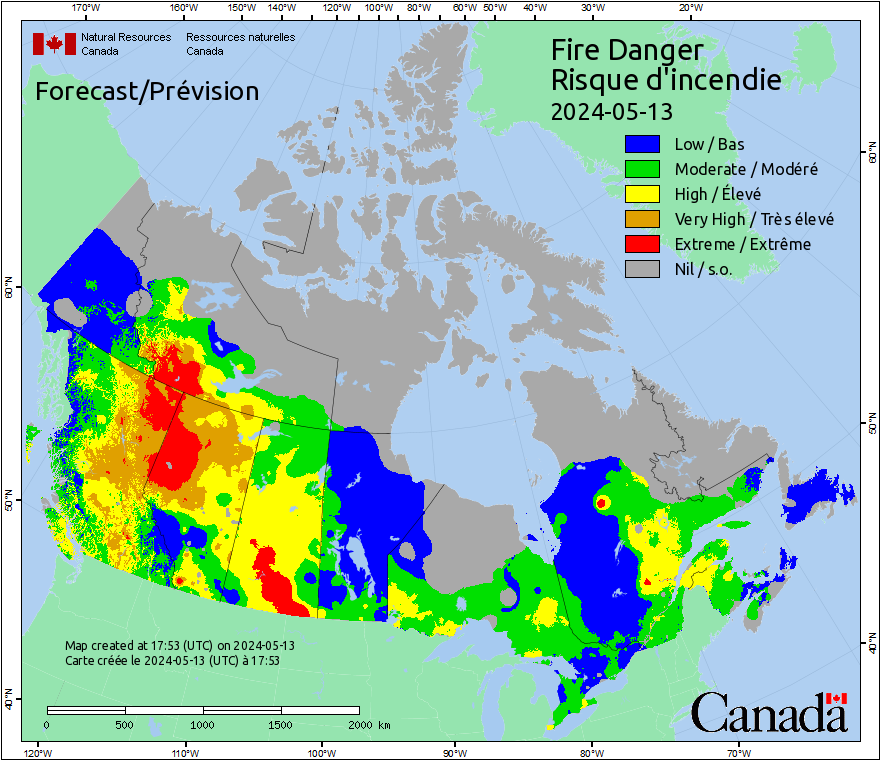
CEO Bryan Gould said in an interview the fire was about 10 kilometres from Aspenleaf's facilities Monday evening, adding the company's decision to shut in production was made out of an abundance of caution.
Canadian Natural Resources, Canada's largest oil-and-gas producer, also has operations in the Swan Hills area. The company has not responded to a request for comment.
Night vision-equipped helicopters, firefighters and heavy equipment worked through the night.
A high-volume water delivery system of sprinklers and hoses is being deployed to help douse properties at risk should the fire draw closer. An incident command team and additional fire crews are expected to arrive Tuesday.
Elsewhere in Alberta, people living southeast of Hinton have been told to prepare for a possible evacuation because of a wildfire burning west of the former coal mining town of Mercoal.
The fire, nearly 400 hectares in size, is classified as out of control.
This article was originally written and published for CBC News. It contains files from Wallis Snowdon, Emily Williams and Reuters.